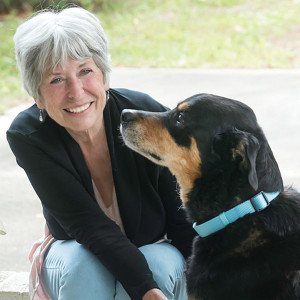Like the old “Change Your Voice” book itself, I sometimes feel woefully worn and dog-eared and torn around the edges. But, perhaps like the book, I have old truths that I am meant to speak, in a voice to be made worth hearing.
It was an old book. Not rare or antique, but rather vintage. Just old enough to smell of aging library glue and dried damp, and to have sepia-toned edges and dog-eared corners that marked passages now long-forgotten in spite of the inspiration they must have once incited.
It was a book my father had given to me, but I don’t remember why. It is entitled: “Change Your Voice, Change Your Life.”
I remembered I had never read it all the way through, but I was looking for it with a purpose now. I was convinced I could find it in the back of my bookshelves because I rarely part with a book once in my possession. And so I did find it. Dipped in dust mites and cobwebs, and a little crisp to the touch, there it was: “Change Your Voice, Change Your Life,” by Dr. Morton Cooper, aka “voice doctor to the stars” and noted voice coach.
The book discusses such topics as finding one’s own authentic voice—especially in terms of pitch and tone and balance. It explores the proper use of breath when speaking. It talks about ridding ourselves of our “habitual body armor”—our “established posturing,” as we use (and misuse) our voices. It promises increased attraction and influence with others, and enhanced value of self.
I had coaxed it out from the vague shadows of my memory and the dark under-shelves of my library to study the spoken word vs. the written word relative to my work. But after going through it more thoroughly, with new intentionality, I began to suspect that perhaps there was more implied wisdom in its simply stated precepts than I had been seeking.
Perhaps I was meant to consider my “authentic voice” in a broader context—as I spoke to the universe in general. And, conversely, perhaps I was meant to consider how I listened to the universe in return—the voices, the breathings, the pitch and tone, the balance, the posturing, the implications.
I thought first about all of the expected sounds of the universe in seasons—as they speak to us in the voices of geese and wind, thick thunder and rustling leaves, through tree frogs and heat lightning, with lashes of rain and the silence of snow.
And I began to suspect that there are other voices of the universe that call out for us to hear them as well—compellingly, and with equal and ultimate authenticity—like the throaty fierceness of raging wildfires; and the surreal, saturating, screams of hurricanes; and the broken last exhale of a species.
I also suspect that, within our realm of individual and immediate influence, there are even more voices—low-pitched, like moans down long back alleys and under bridges; or high voiced calls and cries, indistinct, hard to find; perhaps even lost or silenced sounds—like lost souls, lost futures—weighted under a heavy tone of isolation or the strangled breath of fear.
There are voices that reach out to us from across fences and walls and cultures and faiths and experience and species—and want nothing more than for us to notice them, and to use our own voices on their behalf. And they sit next to us in airports, as fellow travelers from unknown places, looking just like us and nothing like us, careful not to touch each other. They may even live down the street and walk their dogs and say “good morning” wearing casual clothes and polished habitual body armor.
Like the old “Change Your Voice” book itself, I sometimes feel woefully worn and dog-eared and torn around the edges. But, perhaps like the book, I have old truths that I am meant to speak, in a voice to be made worth hearing. Perhaps if I do as the book instructs—about tone and breath and authenticity—perhaps if I “change my voice,” I could respond where I might have been silent. I might answer the universe with compassion, and even my own vulnerability. I might speak in a tone of universal love. I might find an authentic voice that is hopeful. And helpful. Perhaps even wise. And kind. I would hope my authentic voice would always be kind.
I suspect if we all simply chose to “change our voices,” we could, in the end, actually “change life.”
 Marti Healy is a writer living in Aiken with dog Quincy and cat Tuppence. She was a professional copywriter for longer than 35 years, and is a columnist, book author, and popular speaker, whose work has received national recognition and awards.
Marti Healy is a writer living in Aiken with dog Quincy and cat Tuppence. She was a professional copywriter for longer than 35 years, and is a columnist, book author, and popular speaker, whose work has received national recognition and awards.
























